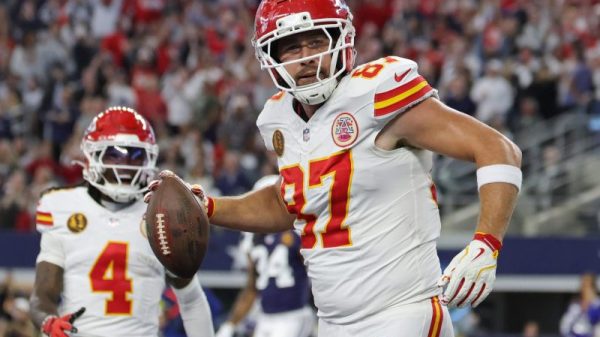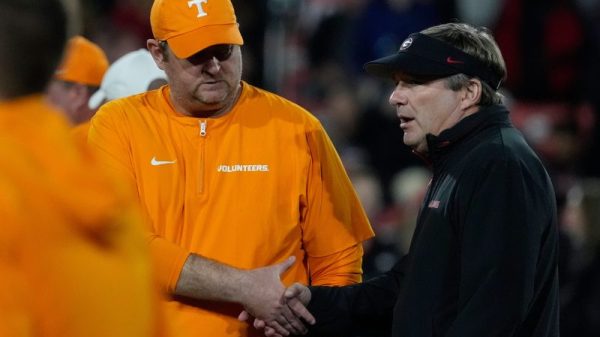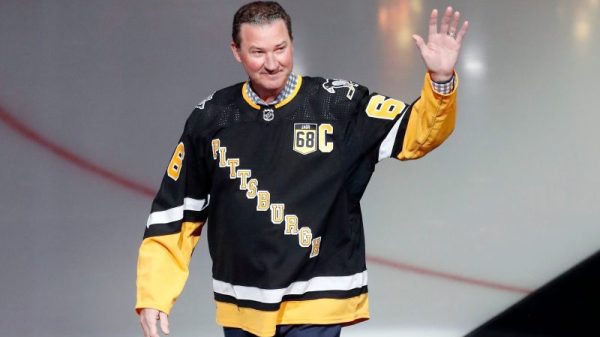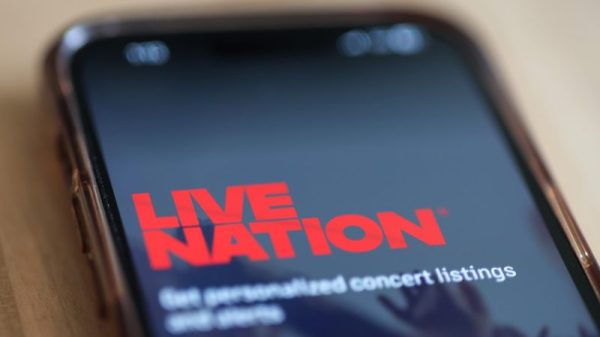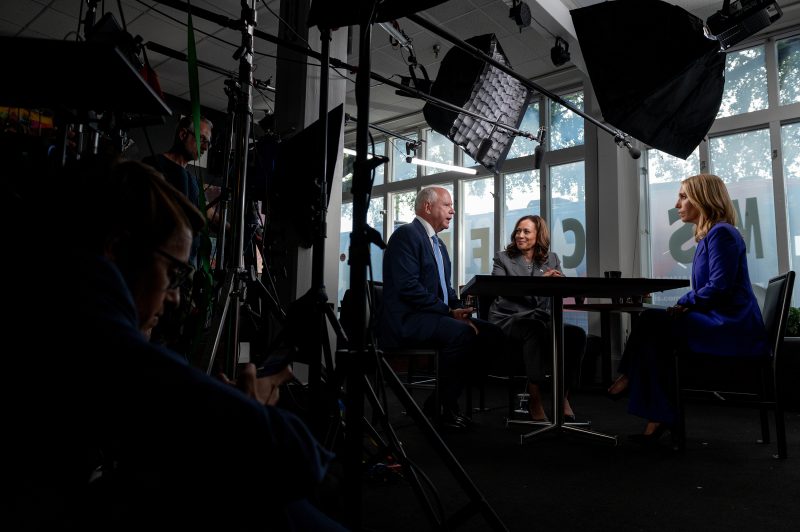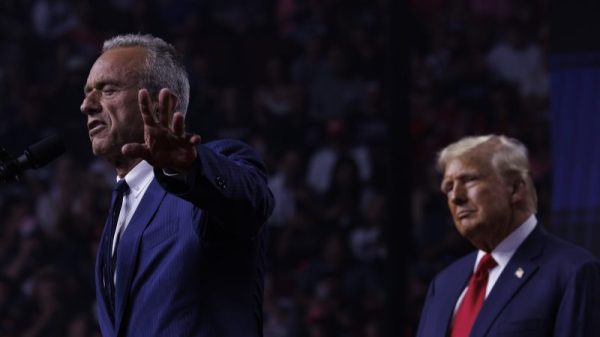Vice President Kamala Harris appeared Thursday in her first major interview since President Joe Biden dropped out of the 2024 presidential race. Harris sat for the CNN interview alongside her running mate, Minnesota Gov. Tim Walz (D).
It was a much-anticipated conversation, given that Harris has yet to lay out an extensive policy agenda and given the dearth of questions she has answered during her five-plus weeks as the Democratic standard-bearer.
Below are some takeaways.
1. Harris suggested that, while her policies have changed, her values haven’t
One of the big questions was how Harris would address the various changes in her positions from her 2020 Democratic presidential primary campaign, when she aligned with a number of liberal causes that she has since distanced herself from.
Harris expounded somewhat — emphasizing that her values have stayed constant — but didn’t provide too much clarity on why she has changed the specifics.
Among the positions she has moved away from are banning fracking and establishing single-payer health care, along with her sympathetic comments about both overhauling Immigration and Customs Enforcement (ICE) and the “Defund the Police” movement. (Harris back then stopped shy of calling for abolishing ICE and actually defunding the police, as some on the left advocated.)
“My values have not changed,” Harris said Thursday, repeating a version of that phrase four more times.
CNN host Dana Bash suggested Harris might have come to view those ideas as impractical as she’s understood them better, or embraced them for short-term political gain in a Democratic primary. (Such positions were more in vogue in the Democratic Party back then.)
Harris didn’t grant either premise, but her answer hued closer to the former. She suggested she’s still working with the same set of values in mind, but employing different tools in changing times.
She suggested some of the goals of the Green New Deal, which she advocated in 2020 but no longer does, were addressed by the Biden administration’s Inflation Reduction Act, including setting goals to deal with climate change.
“We did that with the Inflation Reduction Act,” Harris said. “We have set goals for the United States of America and, by extension, the globe around when we should meet certain standards for reduction of greenhouse gas emissions, as an example.”
Harris said banning fracking was no longer necessary because of advances in clean energy.
She also spotlighted illegal immigration, an issue where she once pushed decriminalization of unlawful border crossings but where she has of late played up border security.
“My value around what we need to do to secure our border, that value has not changed,” Harris said. “I spent two terms as the attorney general of California prosecuting transnational criminal organizations, violations of American laws regarding the passage — illegal passage of guns, drugs and human beings across our border.”
Harris did not directly respond when asked whether she still supports decriminalization, saying instead, “I believe there should be consequence.”
They weren’t the most edifying or enlightening explanations, in that they didn’t really address how much she still might believe in these past policies. Supporting border security, for example, doesn’t explain why you don’t still talk about reforming ICE or decriminalizing illegal immigration.
But politically, you can’t really say that you abandoned a position for expediency or because you realized you were wrong. The former would call into question your sincerity, while the latter would call into question your wisdom.
2. She walked a very fine line on ‘change’
Harris has walked a very fine line in this campaign. She has sought to run as something of a “change” candidate despite her high-ranking role for the past three and a half years as vice president to Joe Biden, who is not a popular or well-reviewed president.
And she certainly massaged that distinction Thursday. She pitched the Biden administration as a successful one that would come to be viewed more positively over time. But she also sought to play up how her presidency could be different and even better.
Perhaps most strikingly, she repeatedly used the kinds of catchphrases you usually hear from a challenger. She twice referred to a “new way forward,” and she twice held up “the last decade” as something to be moved beyond.
“One, I am so proud to have served as vice president to Joe Biden,” Harris said. “And two, I’m so proud to be running with Tim Walz for president of the United States, and to bring America what I believe the American people deserve, which is a new way forward and to turn the page on the last decade of what I believe has been contrary to where the spirit of our country really lies.”
When Bash noted that the last decade included three and a half years under Biden and Harris’s vice presidency, Harris suggested she was talking more about the ethos that began with Donald Trump’s election.
When Bash pressed her on why she hasn’t already done the things she’s pitching using her current perch, Harris suggested that the Biden administration has been limited because of what it needed to do to emerge from Trump and the covid pandemic.
“Well, first of all, we had to recover as an economy, and we have done that,” Harris said.
She pointed to the difficulties coming out of the pandemic and pitched that recovery, however uneven and however high inflation was, as unmatched among wealthy nations. (Many wealthy nations also dealt with high inflation, for example.)
At other points, she more tightly hugged Biden’s legacy.
“I think history is going to show that in so many ways, it was transformative, beyond what we have accomplished around finally investing in America’s infrastructure, investing in new economies, in new industries, what we have done to bring our allies back together,” Harris said, adding that the current administration has achieved “extraordinary successes.”
But she mostly pitched it as something of a first step, suggesting that emerging from the economic recovery would free her up to do bigger and better things.
“I’ll say that that’s good work,” Harris said. “There’s more to do, but that’s good work.”
Washington Post/ABC News/Ipsos polling recently showed that most Americans don’t regard Harris as having played a particularly central role in the Biden administration’s economic and immigration policies.
3. They sought to do no harm, and probably didn’t
In some ways, this was about just getting the first big interview out of the way. Harris has been under pressure for not taking more media questions for weeks — creating plenty of anticipation for this sit-down — and as noted above, there were a number of lingering issues that just haven’t been addressed in speeches and other campaign appearances.
Harris has also seen a sudden surge in popularity after years of being an unpopular vice president, which fueled questions about whether that would hold up amid more direct scrutiny.
Harris was cautious and sometimes circuitous in her answers — the latter being something Republicans often attack her for — but she didn’t really stumble or seem to do anything that might hamper her momentum. She and Walz also dealt with some lingering questions in ways they must hope will allow them to move forward now.
In particular, Walz seemed to concede that some of the things he and his campaigns have said about his biography haven’t been accurate — including about his 1990s drunken driving arrest, about his family’s use of fertility treatments and indicating that he carried weapons into war while serving in the National Guard, even though he was never in combat while overseas in support of the Afghanistan war. He downplayed these remarks in the interview.
Of his weapons claim, he said his wife told him his “grammar is not always correct.” Of a false account of his DUI arrest and statements that indicated his family used IVF rather than a less-contentious fertility treatment, Walz said, “I certainly own my mistakes when I make them.”
Walz didn’t directly address how grammar explains his weapons claim or go into detail about the IVF claim. But the name of the game seemed to be to take these questions, get past them, and hope to move on.






